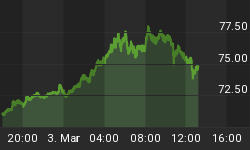Last week we focused on the tug of war between daily and weekly market breadth readings, and between seasonal and fractal patterns. Therefore, it should come as no surprise that the major indices finished the week practically unchanged.
This week we'll follow up with a chart showing the net difference (delta) between the daily and weekly market breadth indicators:
The message should be pretty clear: instances when the two indicators trade at opposite extremes of the spectrum, as is currently happening, are often followed by corrections.
This is further confirmed by a look at the seasonal chart. Despite all the talk about QE, the economy, China, and what not, all the SPX has done so far this year is closely follow the seasonal pattern. And while there's no guarantee that this will be the case for the remainder of the year, we continue keeping a close eye on this particular indicator and will use it as a roadmap for the future:

Chart courtesy of OT Seasonal
From a more traditional TA point of view, the SPX finished the week with a textbook hanging man candle, and is testing the top of the channel, factors which suggest that a trend reversal may be in store:
In summary, several indicators and patterns signal that a countertrend move may follow. We'll adjust our get bullish daily level to above 1700 and our neutral level to 1671 - 1700, while our short-term bearish level remains below 1671.


















